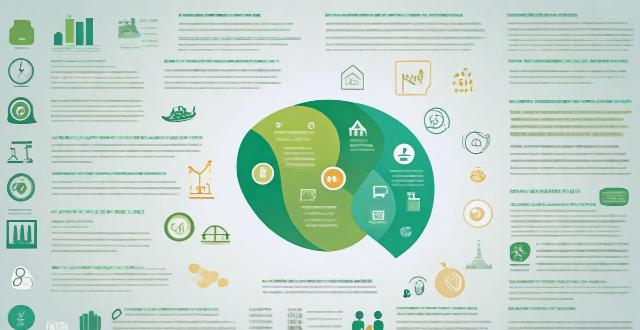The article discusses how climate change will influence future job markets. It highlights the increased demand for green jobs, a shift toward resilient industries, and potential declines in certain sectors that contribute to greenhouse gas emissions or rely heavily on fossil fuels. Additionally, remote work opportunities may rise due to extreme weather events and environmental concerns. The article concludes by emphasizing the need for individuals and organizations to adapt to these changes in the job market.

How Will Climate Change Influence Future Job Markets?
Climate change is a global phenomenon that has far-reaching implications for various sectors, including the job market. As the effects of climate change become more pronounced, it is expected to have significant impacts on future employment trends. This article will explore how climate change will influence future job markets.
Increased Demand for Green Jobs
One of the most apparent impacts of climate change on the job market is the increased demand for green jobs. These are positions that focus on reducing carbon emissions, promoting renewable energy, and conserving natural resources. As governments and businesses prioritize sustainability, the need for professionals in these areas will rise. Here are some examples of green jobs:
- Renewable energy technicians
- Sustable designers
- Environmental scientists
- Conservationists
- Energy auditors
- Waste management specialists
- Sustainability consultants
Shift Toward Resilient Industries
Climate change will also lead to a shift toward more resilient industries. As extreme weather events become more frequent, industries that can adapt and recover quickly from disruptions will be in higher demand. This includes sectors such as construction, engineering, and emergency management. Additionally, companies that can demonstrate their ability to operate sustainably and minimize their environmental impact may have a competitive advantage in attracting customers and investors.
Decline in Certain Industries
On the other hand, climate change may lead to a decline in certain industries that contribute significantly to greenhouse gas emissions or rely heavily on fossil fuels. For example, the coal industry has already seen a decrease in demand due to the transition to cleaner energy sources. Other sectors that could be affected include oil and gas extraction, heavy manufacturing, and transportation. Workers in these industries may need to consider retraining or transitioning to new fields.
Rise in Remote Work Opportunities
Another potential impact of climate change on the job market is an increase in remote work opportunities. As extreme weather events become more common, employers may offer more flexible work arrangements to allow employees to work from home during emergencies or periods of poor air quality. Additionally, the growing awareness of the environmental benefits of reducing commuting may encourage companies to adopt remote work policies as part of their sustainability efforts.
Conclusion
In conclusion, climate change is expected to have significant impacts on future job markets. While there will be increased demand for green jobs and resilient industries, certain sectors may experience declines. Additionally, remote work opportunities may become more prevalent due to extreme weather events and concerns over air quality. As individuals and organizations navigate these changes, it will be essential to stay informed about emerging trends and consider how best to adapt to the evolving job market landscape.